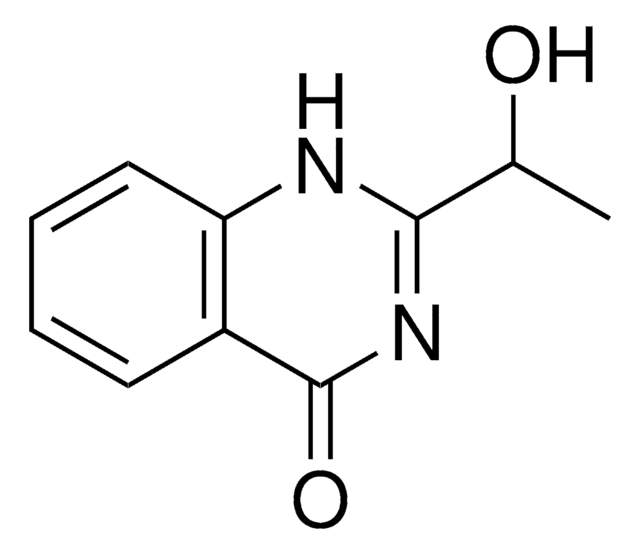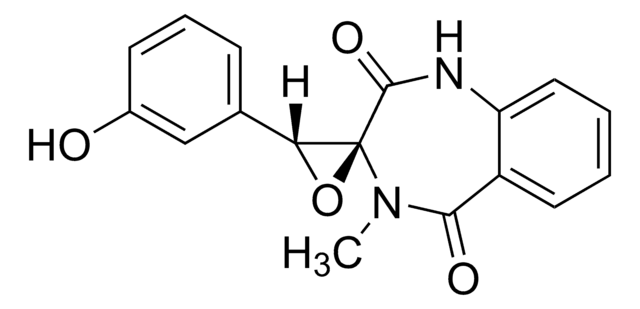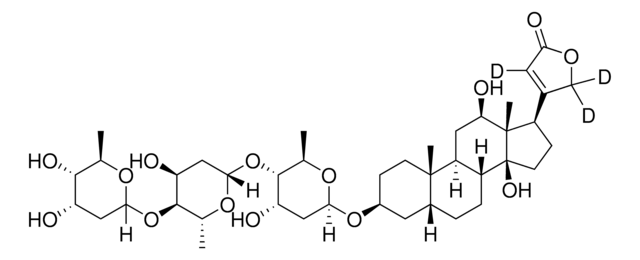SMB01003
Cyclopenin
≥90% (LC/MS-ELSD)
Sinónimos:
(-)-Cyclopenin, (-)-Cyclopenine, 4-methyl-3′-phenylspiro[1H-1,4-benzodiazepine-3,2′-oxirane]-2,5-dione
About This Item
Productos recomendados
biological source
plant
assay
≥90% (LC/MS-ELSD)
form
solid
mol wt
294.3
solubility
water: slightly soluble
application(s)
metabolomics
vitamins, nutraceuticals, and natural products
storage temp.
−20°C
SMILES string
N1(C3(OC3c4ccccc4)C(=O)Nc2c(cccc2)C1=O)C
InChI
1S/C17H14N2O3/c1-19-15(20)12-9-5-6-10-13(12)18-16(21)17(19)14(22-17)11-7-3-2-4-8-11/h2-10,14H,1H3,(H,18,21)
InChI key
APLKWZASYUZSBL-UHFFFAOYSA-N
General description
Application
Biochem/physiol Actions
Features and Benefits
- High quality compound suitable for multiple research applications
- Compatible with HPLC and mass spectrometry techniques
Other Notes
Storage Class
11 - Combustible Solids
wgk_germany
WGK 3
flash_point_f
Not applicable
flash_point_c
Not applicable
Elija entre una de las versiones más recientes:
Certificados de análisis (COA)
¿No ve la versión correcta?
Si necesita una versión concreta, puede buscar un certificado específico por el número de lote.
¿Ya tiene este producto?
Encuentre la documentación para los productos que ha comprado recientemente en la Biblioteca de documentos.
Nuestro equipo de científicos tiene experiencia en todas las áreas de investigación: Ciencias de la vida, Ciencia de los materiales, Síntesis química, Cromatografía, Analítica y muchas otras.
Póngase en contacto con el Servicio técnico







